#foodmyths
Explore tagged Tumblr posts
Text
Plant-Based Meat: How Technology is Changing the Food World
Today, supermarket shelves are stocked with "meat" that isn’t meat at all. Vegan burgers, sausages, and meatballs — all made from plant-based ingredients, yet they almost perfectly mimic the taste and texture of real meat. How did this become possible? Let’s explore the history, technology, and features of plant-based meat, which is revolutionizing the future of food.
The History of Plant-Based Meat
The idea of replacing meat with plant-based products originated in the 19th century among vegetarians who sought ethical eating without animal products. However, the real breakthrough came in the 2010s when innovative products capable of replicating the taste and texture of real meat using modern technology hit the market.
What Ingredients Are Used?
The main ingredients for plant-based meat are proteins from soy, peas, rice, and wheat. Fats are replaced with plant oils, such as coconut and canola oil. To give it the red color typical of raw meat, beetroot extract or plant-based heme (hemoglobin) is used. These components are carefully processed to achieve a texture similar to that of meat fibers.
Breakthrough Technologies
The major achievement in recent years has been the refinement of the texture and taste of plant-based meat. Modern technologies now allow manufacturers to replicate not only the taste but also the sensation of chewing, characteristic of real meat. One key development is the fermentation of plant proteins and the addition of natural flavorings to create a rich "meaty" taste. Companies are also focusing on reducing the carbon footprint and water usage in the production of plant-based meat, making these products even more appealing to eco-conscious consumers.
Interesting Facts
1. In plant-based meat, "blood" is often created using beetroot extract, which gives the product a realistic appearance and juice similar to that of real meat.
2. Plant-based meat production requires up to 90% less water and land compared to traditional livestock farming.
3. Plant-based meat helps reduce greenhouse gas emissions, producing up to 89% less carbon dioxide than regular meat.
Medical Research
Plant-based meat is seen as a healthier alternative to red meat. Studies show it contains less saturated fat and cholesterol, reducing the risk of cardiovascular diseases. Additionally, plant-based products are often rich in fiber, vitamins, and minerals. However, scientists emphasize that not all such products are equally healthy: it’s important to pay attention to the salt content and the degree of processing of ingredients.
Three Simple Recipes with Plant-Based Meat
1. Plant-Based Burger
1 plant-based patty
1 burger bun
Lettuce
Tomato and onion (optional)
Sauce (ketchup, mustard)
Fry the patty in a pan until golden brown on both sides. Slice and warm the bun. Assemble the burger by placing lettuce on the bottom bun, adding the patty, tomato, and onion, and topping with sauce. Close with the top bun.
2. Stewed Vegetables with Plant-Based Mince
200g plant-based mince
1 bell pepper
1 zucchini
1 onion
Olive oil
Slice the vegetables and sauté them in olive oil until soft. Add the plant-based mince and cook on medium heat for 10 minutes, stirring occasionally. Season with salt and pepper to taste. Serve with rice or pasta.
3. Spaghetti with Plant-Based Meatballs
200g spaghetti
5-6 plant-based meatballs
Tomato sauce
Basil (for garnish)
Cook the spaghetti according to package instructions. Fry the meatballs until golden brown. Add tomato sauce and heat it with the meatballs. Serve the spaghetti with the meatballs and garnish with fresh basil.
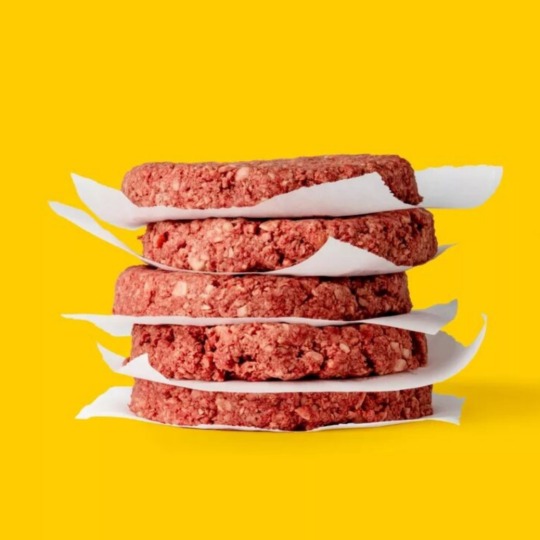
Plant-based meat is not just a trend, but the future of food, where technology is helping to create tasty, eco-friendly, and ethical products. The development of these products shows that innovations in food can not only satisfy our taste preferences but also help preserve the planet.
0 notes
Text
Debunking common nutrition myths and misconceptions!
Achieving a healthy lifestyle can be challenging due to the abundance of myths and misconceptions surrounding nutrition and health. These false beliefs often lead people to make poor dietary choices. To help you adopt healthy eating habits, we will be debunking some of the most common nutrition myths and misconceptions and discuss key principles to follow. Debunking common nutrition myths and…

View On WordPress
#BalancedDiet#DietaryAdvice#DietaryMyths#EatingMyths#FoodFacts#FoodMyths#HealthMyths#HealthyEating#HealthyHabits#HealthyLiving#MythBusting#NutritionDebunked#NutritionEducation#NutritionFacts#Nutritionmisconceptions#NutritionMyths#NutritionScience#NutritionTips#WeightLossMyths#WellnessFacts
0 notes
Text
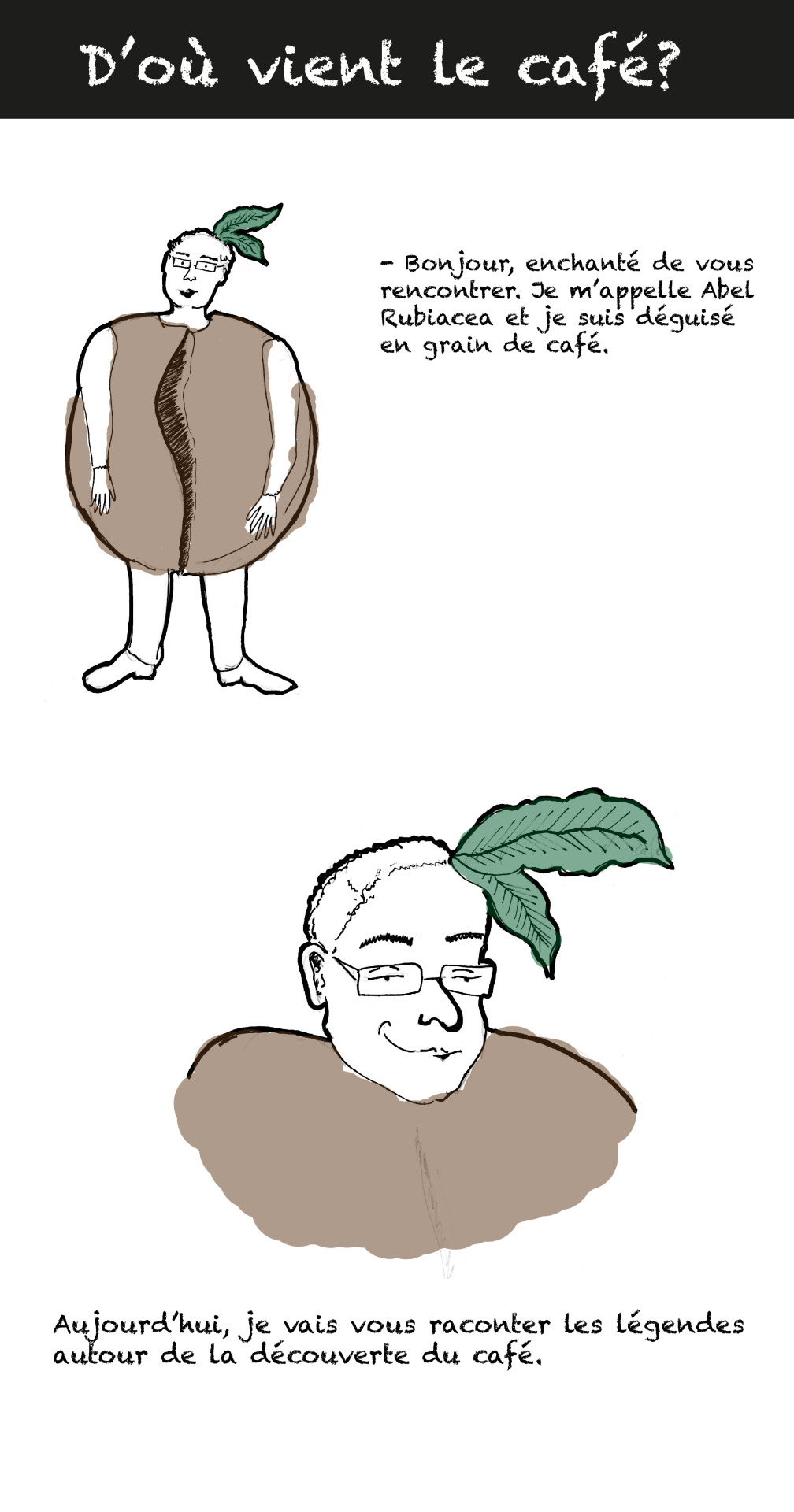
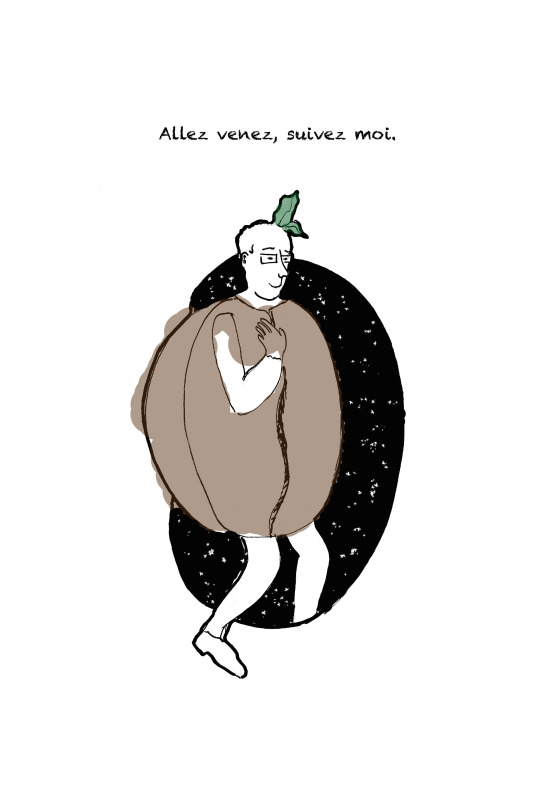
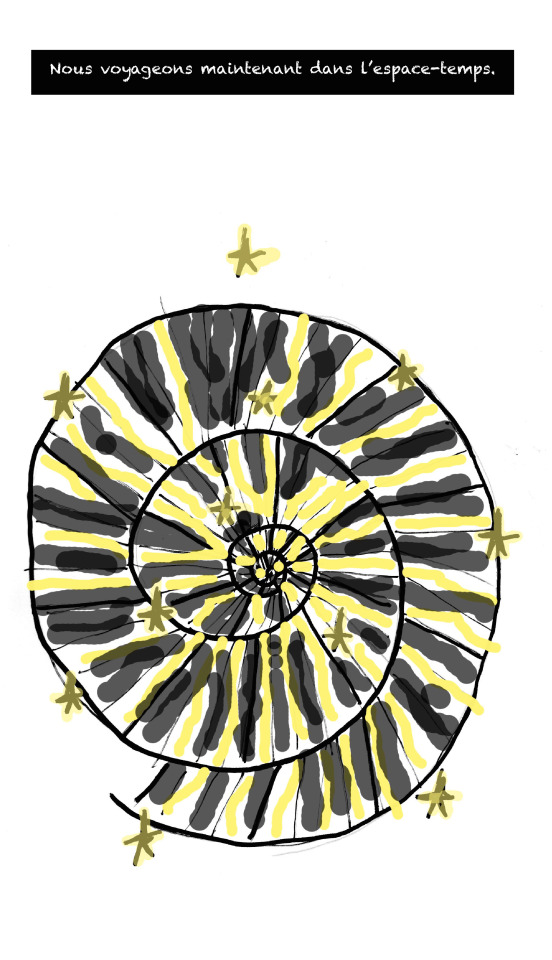
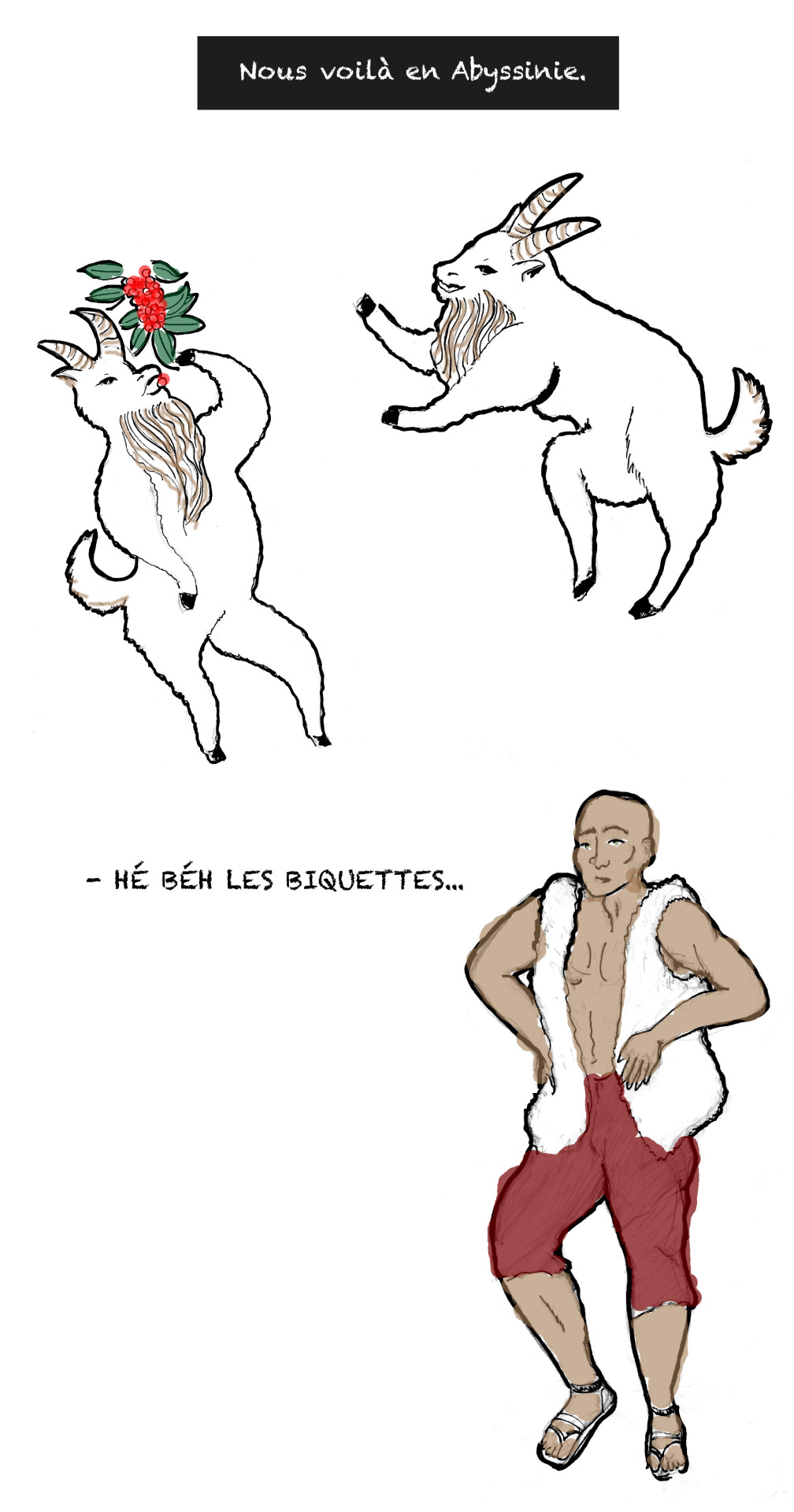
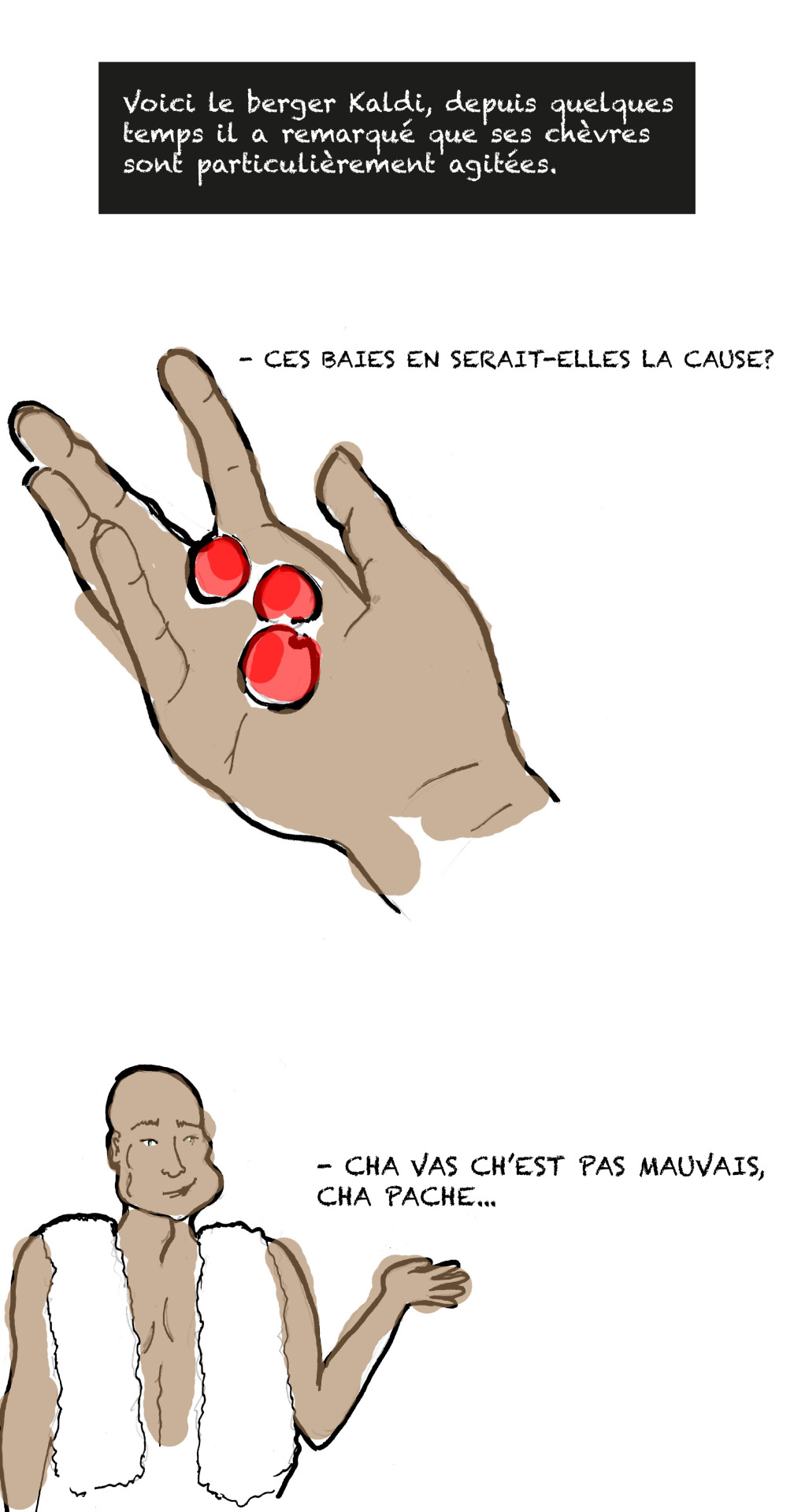

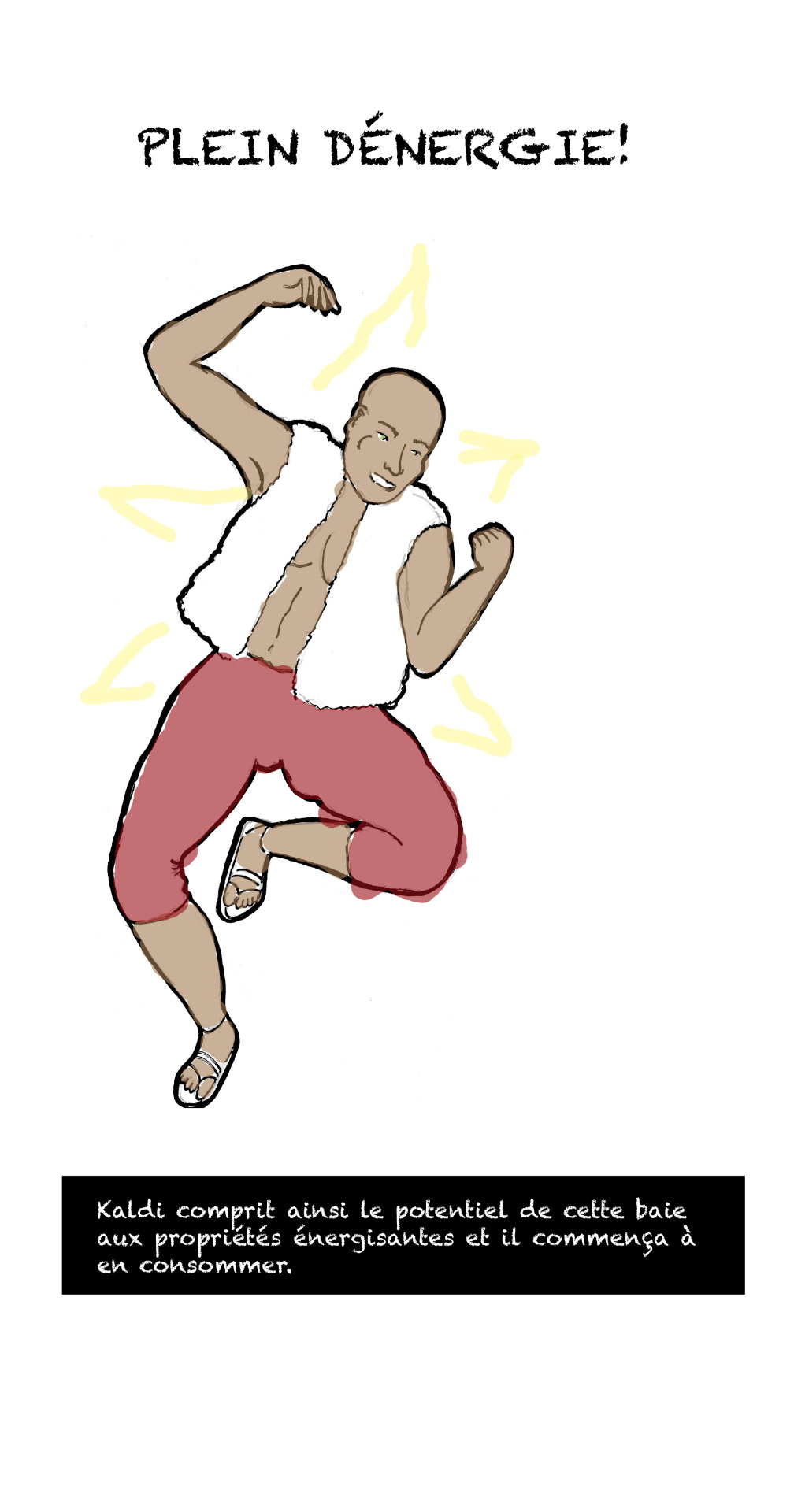
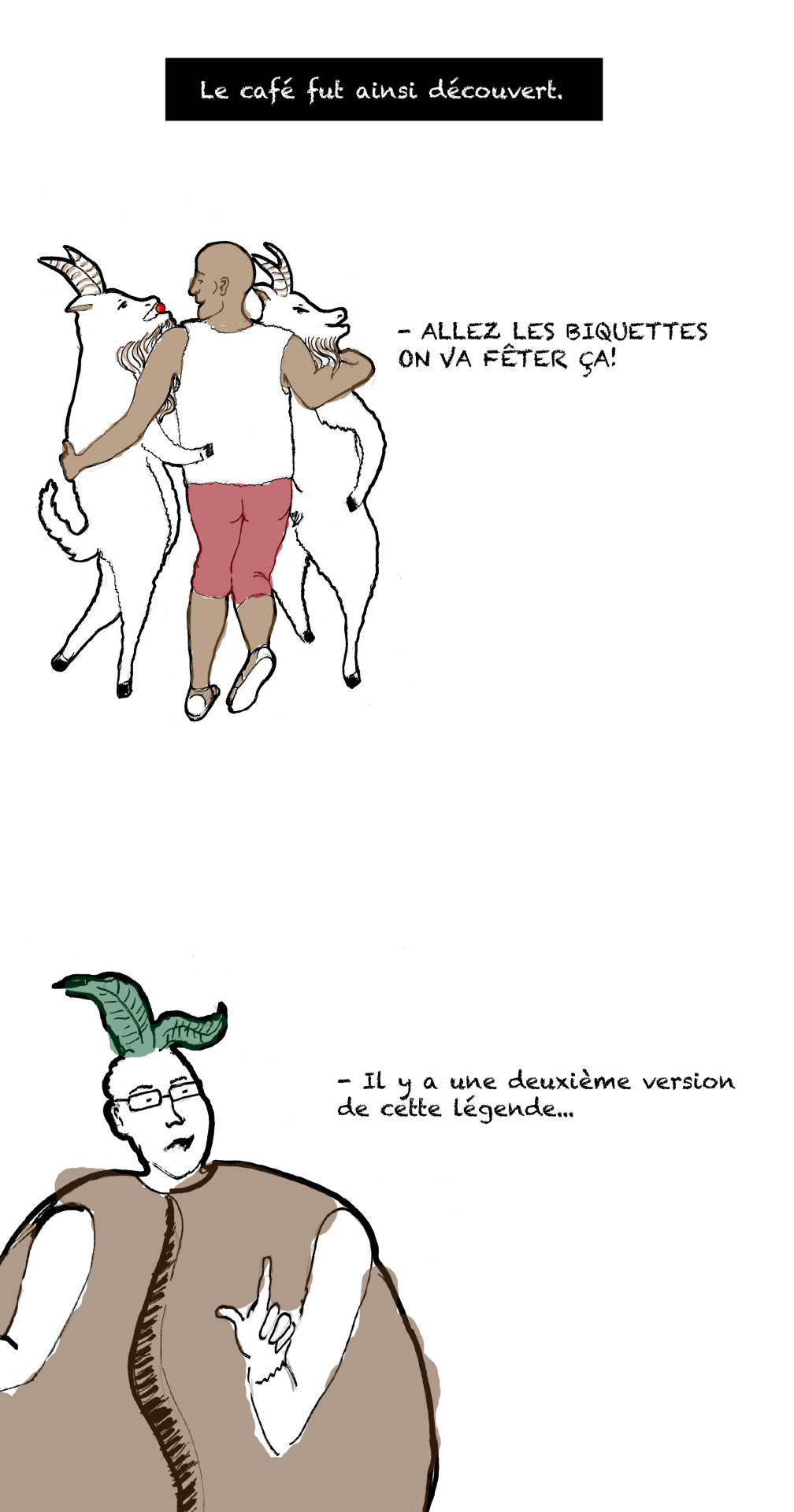
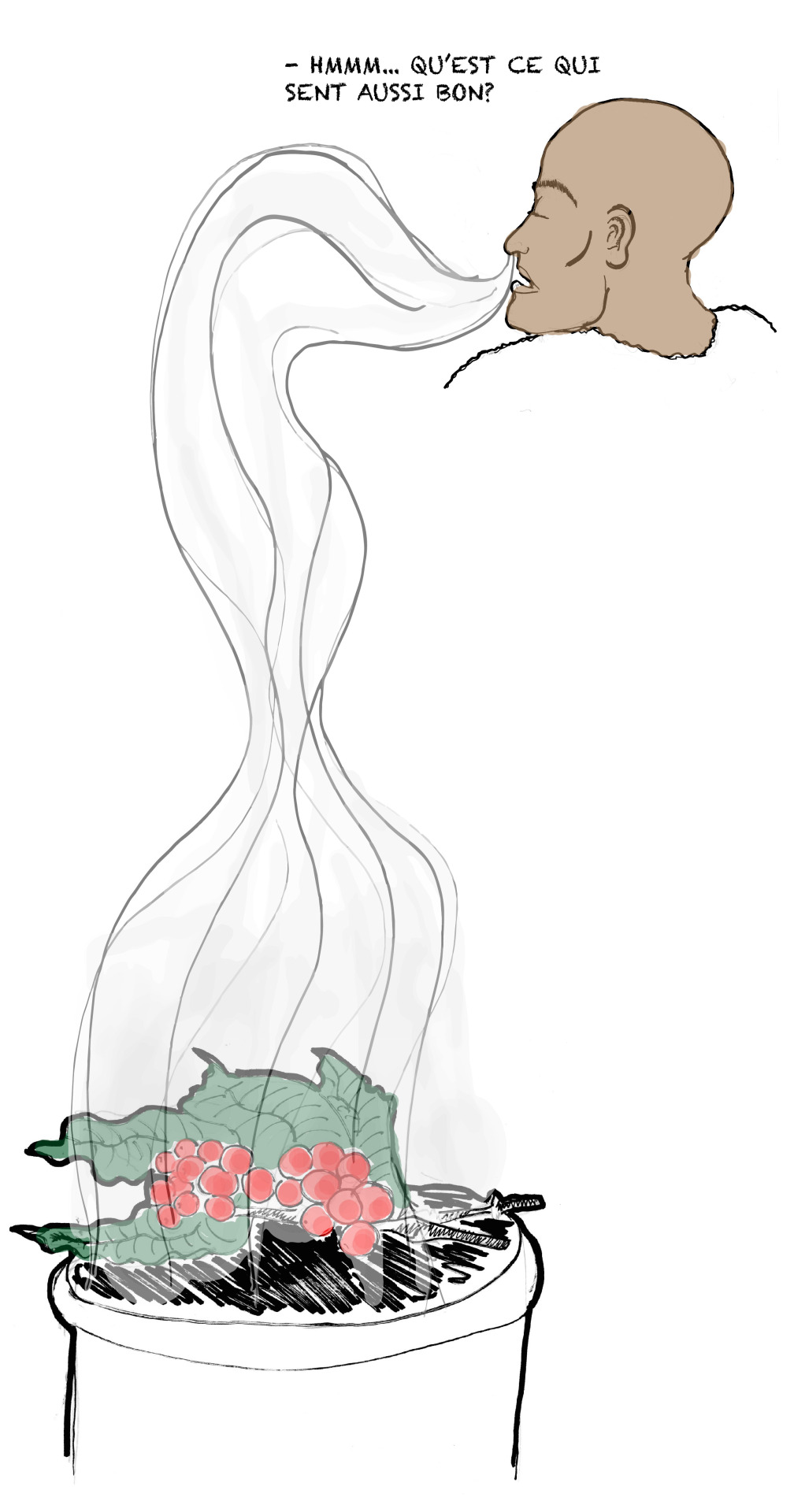
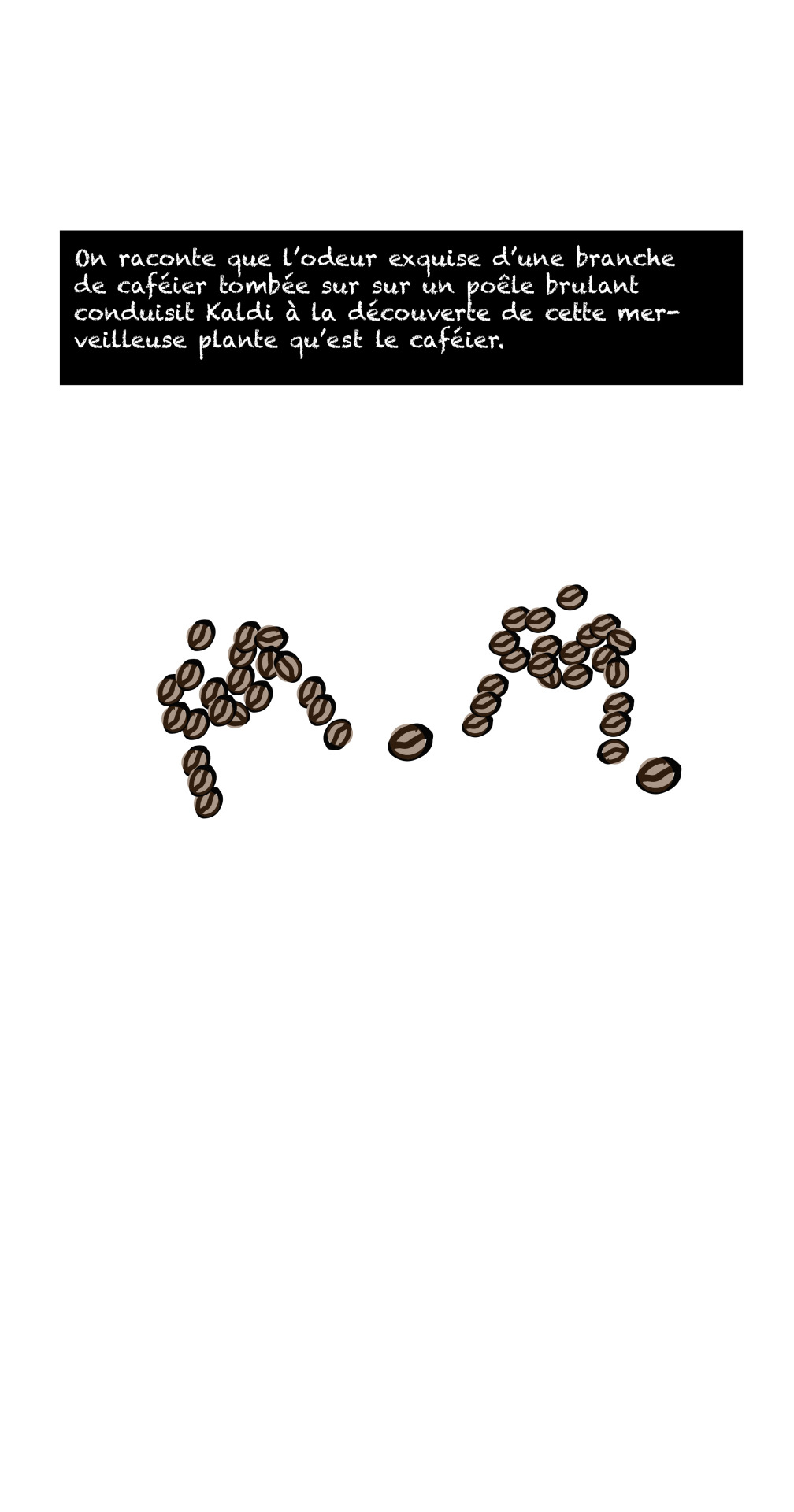
L'histoire romancée de la découverte du café ☕️
Petite bd réalisée pour Gaspard & Julien
1 note
·
View note
Text
youtube
What's REALLY Inside SPAM (the food, not the emails) Ever wondered what's REALLY inside Spam? 🤔 In this eye-opening video, we dive deep into the ingredients of this canned meat phenomenon. Join us as we unveil the truth behind Spam's unique flavor and texture, exploring the surprising components that make it a staple in kitchens worldwide. With high-resolution and engaging visuals, we'll take you on a journey from production to your pantry, uncovering myths and fun facts along the way. Whether you're a fan or a skeptic, this video is packed with information that will change how you view this iconic product forever! Don't forget to like and share if you found this video informative! #Spam #FoodFacts #CannedMeat #WhatsInsideSpam #FoodMyths #HowItIsMade #HowSpamIsMade OUTLINE: 00:00:00 A Global Phenomenon 00:00:29 What's Inside That Can? 00:00:56 The Making of a Mystery Meat 00:02:55 Spam's Nutritional Breakdown 00:04:19 A Walk Down Memory Lane 00:05:44 More Than Meets the Eye 🔔𝐃𝐨𝐧'𝐭 𝐟𝐨𝐫𝐠𝐞𝐭 𝐭𝐨 𝐬𝐮𝐛𝐬𝐜𝐫𝐢𝐛𝐞 𝐭𝐨 𝐨𝐮𝐫 𝐜𝐡𝐚𝐧𝐧𝐞𝐥 𝐟𝐨𝐫 𝐦𝐨𝐫𝐞 𝐮𝐩𝐝𝐚𝐭𝐞𝐬. https://www.youtube.com/@Manufactour/?sub_confirmation=1 🔗 Stay Connected With Us. Instagram: https://ift.tt/St9kFfy ============================= 🎬Suggested videos for you: ▶️ https://www.youtube.com/watch?v=KS2oKhKsTxw ▶️ https://www.youtube.com/watch?v=aFg44Cp6weE&t=5s ▶️ https://www.youtube.com/watch?v=84JCg8AY-Wo ▶️ https://www.youtube.com/watch?v=L4LvhqCgQ2s ▶️ https://www.youtube.com/watch?v=R-Qtvv3W8b8 ▶️ https://www.youtube.com/watch?v=yQmY9Ldv1bE ▶️ https://www.youtube.com/watch?v=Z0qzMFOHgpk ▶️ https://www.youtube.com/watch?v=U02BMj09Wio ▶️ https://www.youtube.com/watch?v=P753fee4kRU ================================= ✅ About ManufacTour. Ever wondered how your favorite products come to life? Welcome to ManufacTour! At ManufacTour, we take you behind the scenes to explore the fascinating step-by-step processes that bring all kinds of products into existence. From everyday essentials to groundbreaking technologies and intriguing innovations, we reveal manufacturing secrets like never before. Discover the "why" and "how" behind the most interesting creations. Get into the world of craftsmanship, precision, and creativity. Join us on a journey through the captivating manufacturing world, one process at a time. 🔔 Hit Subscribe to ManufacTour now and discover how everyday products and groundbreaking innovations are brought to life! https://www.youtube.com/@Manufactour/?sub_confirmation=1 ================================= 🔎 Related Phrases: Hashtags via ManufacTour https://www.youtube.com/channel/UC7jM-HeXkReUyl3y6oSU-3w January 05, 2025 at 11:00PM
#digitalmanufacturing#ai#manufactour#techinnovation#manufacturing#materialsscience#automotive#futuretech#Youtube
0 notes
Text
#FoodMyths, #NutritionMisconceptions, #HealthyEating, #DietMythsDebunked, #NutritionFacts, #EvidenceBasedNutrition, #HealthyDietTips, #CommonFoodBeliefs, #FoodScience, #NutritionalAdvice
0 notes
Text
#FoodMyths, #NutritionMisconceptions, #HealthyEating, #DietMythsDebunked, #NutritionFacts, #EvidenceBasedNutrition, #HealthyDietTips, #CommonFoodBeliefs, #FoodScience, #NutritionalAdvice
0 notes
Text
5 Myths About Eating Disorders You Must Stop Believing
Myth 1: Eating Disorders Are a ChoiceMyth 2: Eating Disorders Only Affect Young WomenMyth 3: You Can Tell if Someone Has an Eating Disorder by Their AppearanceMyth 4: Eating Disorders Are Just About FoodMyth 5: Recovery from an Eating Disorder is Quick and EasySeeking Help for Eating DisordersAdditional ResourcesConclusion Eating disorders are complex mental health conditions that can have…
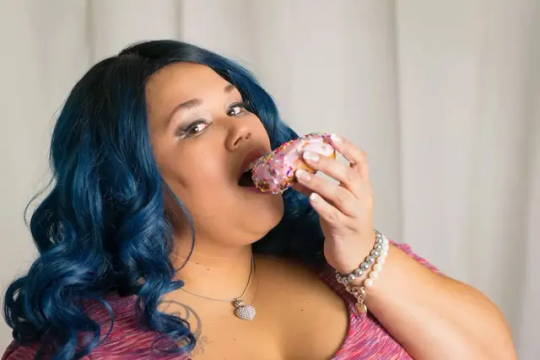
View On WordPress
0 notes
Text
బిర్యాని, కూల్ డ్రింక్ కలిపి తీసుకుంటున్నారా.? || High-Risk Combination: Biryani and Cold Drinks || Punarjan Ayurveda
Welcome to our channel, where we uncover lesser-known food combinations that could potentially pose risks to your health. In this eye-opening video, we're delving into the high-risk combination of indulging in biryani while sipping on cold drinks.
For more info visit : https://www.youtube.com/watch?v=CF8WJ3BeraU
#ayur4cancer #biryani #colddrink #coldbeverage #biryanirecipe #biryanilovers #biryanilover #biryanilove #cooldrinks #biryanisideeffects #FoodCombinationRisks #BiryaniAndColdDrinks #digestivehealth #healthyeatingtips #nutrientabsorption #HydrationBalance #foodmyths #DigestiveDiscomfort #BloatingPrevention #NutritionInsights #healthawareness #mindfuleating #wellnessjourney #dietarychoices #foodscience #digestivewellness #foodpairing #digestiontips #biryanilovers #DrinkChoices
0 notes
Text
If You Trust These Food Myths, Then Compromise With Your Health
We all know that good food is essential for better health and it is more important to eat it properly. Like some foods are eaten raw, some food items are cooked and eaten more healthy. Not only this, some food combinations are considered more effective.
Since there are many types of food items available all over the world and each one has its own specialty. In such a situation, many times women unknowingly fall prey to some food myths. Not only this, but sometimes these food myths can also have an adverse effect on your health.
So, today we are also telling you about these popular food myths will also introduce you to their real truth-
Myth 1- Bananas and apples are rich in iron
Truth- Some people believe that bananas and apples are rich in iron, as they turn brown after cutting them. However, this is completely a myth.
Apples and bananas are great sources of fiber, not just iron. This change in color after cutting is an enzymatic reaction and has nothing to do with iron.
Myth 2- If you want to avoid diabetes, stay away from sugar
Truth- You may have heard people saying that sweets should be eaten less, otherwise diabetes will occur. Due to this, the illusion will be created in your mind that keeping sugar away from the diet will keep you away from diabetes, but in reality, it is not so, it is not necessary.
0 notes
Text
A food scientist explains the bromide and Azodicarbonamide scare.
"Banned in Europe" doesn't tell you anything about the safety of any ingredients. There are also many ingredients banned in the US that are used in Europe.
Facts, not fear.
London — From baguettes to focaccia, Europe is famous for its bread. But there's one ingredient conspicuously missing: Potassium bromate. It's a suspected carcinogen that's banned for human consumption in Europe, China and India, but not in the United States.
In the U.S., the chemical compound is used by some food makers, usually in the form of fine crystals or powder, to strengthen dough. It is estimated to be present in more than 100 products.
"There is evidence that it may be toxic to human consumers, that it may even either initiate or promote the development of tumors," professor Erik Millstone, an expert on food additives at England's University of Sussex, told CBS News. He said European regulators take a much more cautious approach to food safety than their U.S. counterparts.
Asked if it can be said with certainty that differences in regulations mean people in the U.S. have developed cancers that they would not have developed if they'd been eating exclusively in Europe, Millstone said that was "almost certainly the conclusion that we could reach."
It's not just potassium bromate. A range of other chemicals and substances banned in Europe over health concerns are also permitted in the U.S., including Titanium dioxide (also known as E171); Brominated vegetable oil (BVO) (E443); Potassium bromate (E924); Azodicarbonamide (E927a) and Propylparaben (E217).
Millstone, who's spent almost half a century researching food and agriculture science, said most Americans were likely completely unaware that they were being exposed on a daily basis to substances in their food viewed as dangerous in Europe.
360 notes
·
View notes
Photo
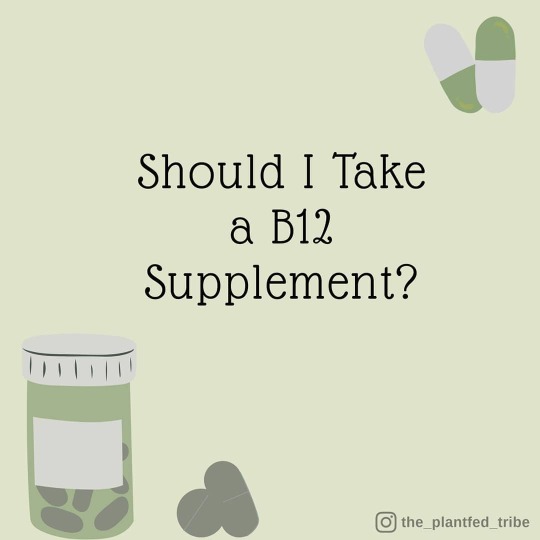
But where do I get my B12??🤔 The most commonly asked question when it comes to adopting a vegan or plant-based diet. Unfortunately, there is a lot of misunderstanding when it comes to this subject. Let’s clear some things up. Vitamin B12 is produced by bacteria. Not by animals and not by plants. These bacteria thrive in places like the colon of certain animals, including humans and are found in some soil or dirty water (although rare with our current agricultural methods). The question if you are getting enough vitamin B12 from food (regardless of the source; meats, mushrooms, seaweed, etc.) is highly dependent on the absorption rate in your body. This is a complicated process which is influenced by a lot of factors and can be affected by things like alcohol, smoking and medicine use. Simply do a blood (and urine) test to find out if your levels are sufficient or not (both vegans and non-vegans should consider this). In general it is recommended to take around 2500 micrograms a week (or 250 a day) when supplementing. The best and most well-absorbed form of B12 is the crystalline form called “methylcobalamin”. Simply check the label for the amount and type of B12. There is no set “Tolerable Upper Limit” for B12 so don’t worry about taking too much. It will just leave your body through your urine. Please share any questions or concerns in the comments so we can discuss further if needed.🙏🏻🌱💚 . . . . . . #nutrition #plantbased #wholefoods #plantstrong #organic #plantpower #cleaneating #plantbaseddiet #vitaminb12 #b12deficiency #healthyeating #healthychoices #healthyliving #vegansupplements #b12supplement #plantfedtribe #nobullshit #foodfacts #foodmyths #powerofnature #naturefirst #vegansofig #whatveganseat #veganfood #govegan #veganism #veganlife #animalfree #crueltyfree #organicvegan https://www.instagram.com/p/CDgPDtDHjjy/?igshid=ubuazbjqoelr
#nutrition#plantbased#wholefoods#plantstrong#organic#plantpower#cleaneating#plantbaseddiet#vitaminb12#b12deficiency#healthyeating#healthychoices#healthyliving#vegansupplements#b12supplement#plantfedtribe#nobullshit#foodfacts#foodmyths#powerofnature#naturefirst#vegansofig#whatveganseat#veganfood#govegan#veganism#veganlife#animalfree#crueltyfree#organicvegan
2 notes
·
View notes
Text
Debunking Food Myths
Have you ever found yourself maintaining health advice you heard and then realize later on that you were completely wrong? We've all been there at some point in our lives. Some conventional food wisdom is, well, not so wise, and other eating advice can be confusing. With so much nutrition advice out there, it can be hard to figure out who or what to believe. Especially nutrition is a very confusing topic. Diet trends and fads have many of us confused about food and even when to eat them. One day you read an article about what food is best for you, and then the next day you read another one saying that the exact same food is not good for your health. With that being said, nutrition research can be very puzzling and it's changing. We all have received plenty of advice from family, friends on what is healthy and what is not. And also from television commercials, to magazines and to the internet world, one can find an array of nutritional information. Urging us to eat this and not that, or warning us that such and such would cause harm issues while others would bring about unexpected health benefits. But are they true? Or nothing but a myth? Are your knowledge about nutrition reliable? Because there are so much misinformation swirling in the world of nutrition, it can be very difficult to determine what's fact among them. With that being said here are some food myths we hear or read and the truth behind them.
Anyone dreams of having a beautiful voice just like that of our favorite singers and you have probably heard that ginger can help us in achieving this dream, but sad to say, ginger won’t make our voice any better for singing since it has no direct effect on our vocal cords. It has a lot of beneficial effects including its warming properties, increasing blood flow to any area it touches and its anti-inflammatory effects, helping to soothe an irritated throat, however eating raw ginger won’t make our singing voice better as what we might have believed in for a long time, it just helps in keeping our voice in a good condition. Speech-language pathologist Shelagh Davies said that nothing we swallow actually touches our vocal cords, only what we inhale do so. So, when we take a sip of that ginger tea, we inhale a little steam, moistening our vocal folds directly and the ginger’s anti-inflammatory properties soothe our throat, which is probably why ginger was thought to make our voice better. Another food myth we might have believed in is that the culprit to acne is chocolate. However, Dr. Ava Shamban, a dermatologist from Los Angeles said that chocolate cannot be directly faulted for breakouts but the consumption of high sugar foods and fat can increase the body’s sebum production, promoting inflammatory responses in the body which leads to acne. From past studies conducted, there has been no direct link between any specific food to the development of acne. The real cause of this is the buildup of dead skin cells, an excess sebum, and the proliferation of bacteria. Hormones and a high sugar diet can be aggravating factors, but not the chocolate itself. Too much bananas will kill you they say- six contains a lethal dose of potassium – eat that many at once and risk death. This is, of course, a myth. Catherine Collins, a dietitian at London told that an average person would need to eat about 400 bananas a day to build up high potassium levels dangerous to your health. BBC also reported that you could safely eat around 7 ½ bananas in a day and still be under the recommended daily allowance of potassium which they say is 3,500 milligrams per day for a day for adults. Potassium keeps our heart, blood and nervous system healthy, however, in very large doses, it can slow down the heart and cause kidney failure. So, you can’t overdose from banana unless you are suffering from renal failure and is on dialysis, where a strict low-potassium is necessary to prevent potassium build-up.
Are you familiar with the 5-second rule of food? That when you drop your food on the table or on the floor you immediately pick it up and say "wala pa naman 5 seconds pwede pa to" but are you really sure that it's still safe to eat? Well, let's debunk that. According to experts, not because its a rule means it is true. They conducted research about this rule and the concluded that it takes less than 5 seconds before microorganisms transfer from the floor to your food. So the next time your food fell, think twice before picking it up again.
Lastly, we have Gum, do you remember when we were still young our parents will tell us that don't swallow gum because it will be stuck in your system for quite a long time. But in reality, it doesn't. In ancient times, gum is made from the sap of the sapodilla tree, but today in modern times they now use synthetic rubber to make gum. That once swallowed, your small intestine will absorb the nutrient and the undigested part of the gum will pass through your rectum peacefully. So don't worry when you swallow gum, because in less than 7 days it will be digested by your system.
So let me tell you one thing, we all know that social media like Twitter, Facebook, and Instagram is the most common and largest platform where we share different kinds of information to different kinds of people, and guilty or not we all know that once in our life we shared information that was not reliable or credible. But we share it with other people anyway. And they tend to share it with different kinds of people as well. So as nurses, we should be the ones who stop the chain of misinformation. We should start with ourselves, when we talk to our patients we should not base our judgment on superstitious beliefs and only provide facts. We should educate our patients about researching before sharing information with their friends or family.
Given the large amount of misconceptions about food that circulates, these are just some of them, debunking and busting common food myths can help you make healthier choices which are backed up with science. Even if you're a smart-eater, misleading or dated headlines might lead you to nutrition misinformation. Experts who shared the truth behind these myths help us separate facts from fiction. Always remember that to eat is a necessity, but to eat intelligently is an art.
Read more on:
Ginger, singing voice: Does ginger tea actually help the voice?, Use ginger to improve your singing voice, Prevent vocal cord damage and protect your singing voice by drinking the right liquids.
Chocolate, acne: Does chocolate cause acne?, Does chocolate cause acne?, Does chocolate cause acne? After many studies, the answer is ... 'complicated', Does chocolate cause acne? A top dermatologist gives us the real answer.
Bananas, potassium overdose: How many bananas would you have to eat to kill you?, Can you die from eating too many bananas?, Can eating too many bananas cause a potassium overdose?, Can eating more than six bananas at once kill you?.
5-second rule: The 5-Second Rule, '5-Second Rule' Rules, Sometimes
Gum, undigested: Will swallowing chewing gum clog up your stomach?, How long does gum take to digest?, What really happens when you swallow your gum?
1 note
·
View note
Photo
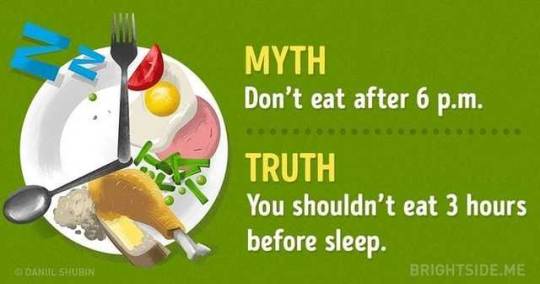
Food myth. #foodmyths #myth #health #healthyfood #healthylifestyle #healthyeating #livehealthy https://www.instagram.com/p/B3cHiu5grdC/?igshid=e26iturbsz9j
1 note
·
View note
Photo
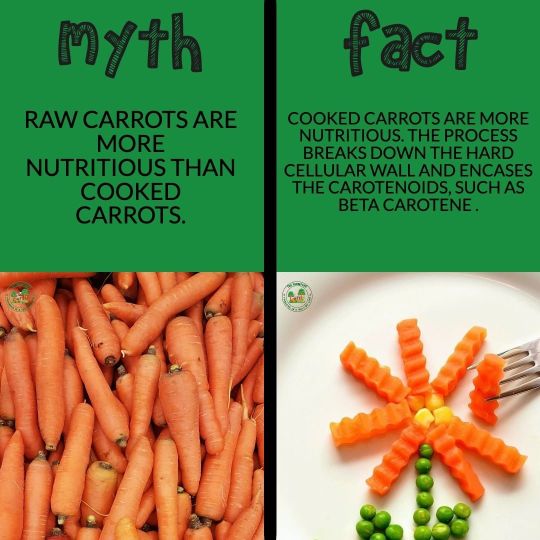
The fiber in carrots can help keep blood sugar levels under control. And they're loaded with vitamin A and beta-carotene, which there's evidence to suggest can lower your diabetes risk. They can strengthen your bones. Carrots have calcium and vitamin K, both of which are important for bone health. In a society where quick and fast food has become the norm, coming to understand the value of good health will never be to trivial. Here at The FarmPURE, we make sure that is not the case. #carrot #myth #healthyfood #food #lunch #dinner #homecooking #foodmyths #carrotjuice #healthyfood #thefarmpure #organics #healthadvice #healthaddiction (at Surat city-The city of Bridges.) https://www.instagram.com/p/CaUlnpgvJSj/?utm_medium=tumblr
#carrot#myth#healthyfood#food#lunch#dinner#homecooking#foodmyths#carrotjuice#thefarmpure#organics#healthadvice#healthaddiction
0 notes
Text
Hello there!
We hope everybody out there is feeling positive and testing negative with Covid-19. ;)
So here we are, to bring to y'all, facts about nothing special but, FOOD.
The FOOD you eat. The FOOD you like. The FOOD you dislike and what not but, FOOD!!!!!
Looking forward to getting connected and sharing insights, myths, truths and facts about FOOD.
1 note
·
View note
Text
Food Myths Busted
We hear so many things in the media about what foods we should avoid,I thought it would be a good idea to dispel some of those myths.
Drinking tea of coffee causes dehydration
Caffeine in both coffee and tea has a diuretic effect, which means your body produces more urine. As you’re going to the toilet more, you’re also losing sodium and water, which in the most extreme cases causes dehydration, but you would need to drink a huge quantity of caffeine for it to have any real effect on your hydration.
Celery and Lettuce have negative carbs
Contrary to belief, there are no foods that contain fewer calories than you burn whilst eating. All foods contain calories and celery, and lettuce is no different. However, they do make very healthy, low-calorie snacks. A stick of celery is only around 10 calories and provides great dietary fibre, among other things.
Eating eggs causes high cholesterol
In comparison to saturated and trans fats which are the common dietary causes of high cholesterol, eggs have a relatively insignificant effect. Not to mention, eggs also contain protein, omega-3, vitamins, and minerals, all of which are very important elements of a healthy diet. According to The Heart Foundation, you can eat up to 6 eggs each week without increasing your cholesterol and risk of heart disease.
Sweeteners are worse for you than sugar
There is no evidence to support the myth that eating artificial sweeteners are any worse for you than other sugars. Both have very similar nutritional properties and are both broken down into fructose and glucose in our digestive system. Approach artificial sweetener in the same way as you would sugar, avoid it where you can and always try to limit your consumption.
Potatoes are empty carbs
Piling your plate high with potatoes is not great in nutritional terms, but one medium baked potato (skin on) is actually very good for you. With around 20% of your daily potassium and 4g of fibre, a baked potato is a nutrient-rich and low-calorie addition to a meal.
Eating at night causes weight gain
The time of day that you eat does not affect your body’s ability to digest foods. It’s not about when you eat but rather how much and what. Late night eating is commonly linked to stress and eating at the end of a long day isn’t a good idea. Also eating high-calorie, high-fat snacks late at night, makes it harder to sleep and ultimately leads to overeating the next day.
Microwaved food has less nutrients
Nutrient loss in food is caused by heat and the length of cooking time. Microwaving uses less heat than conventional cooking methods and is often a lot quicker, so this method helps keep nutrient loss at a minimum. Adding water during cooking can significantly increase the loss of nutrients, so try steaming vegetables instead.
We shouldn’t eat fruit as it contains high levels of sugar
Fruits contain high levels of a sugar called fructose, and like any carbohydrate, a lot of energy. However, eating a couple of pieces of fruit a day is good for you. Most of us don’t eat enough of it, and eating whole fruits is a great source of dietary fibre and various vitamins and minerals, including vitamin C and potassium.
Eating carbohydrates make you gain weight
‘Carbs’ are often associated with potatoes, pasta, bread and rice, and we’re told to avoid them as much as possible. But carbohydrates are an important part of a balanced diet. In fact, all fruits, vegetables, breads, grains, and sugars contain carbohydrates, and our bodies need them to function.
Different carbohydrates have different nutritional values, and there are plenty of healthy options to choose to ensure you’re getting a range of other benefits. Stick to wholegrain bread, pasta, and cereals as these are fantastic alternatives to foods with added sugars and fats.
Source: https://www.trueprotein.com.au
For more inspirational, life-changing blogs, please check out my site https://www.thecpdiary.com
#thecpdiary#blog#FoodMyths#Busted#FoodFacts#FoodMythsandFacts#DietandNutrition#NutritionHealth#NutritionTips#HealthandWellbeing#Lifestyle#PositiveLifestyle#PositiveMentalHealth
0 notes